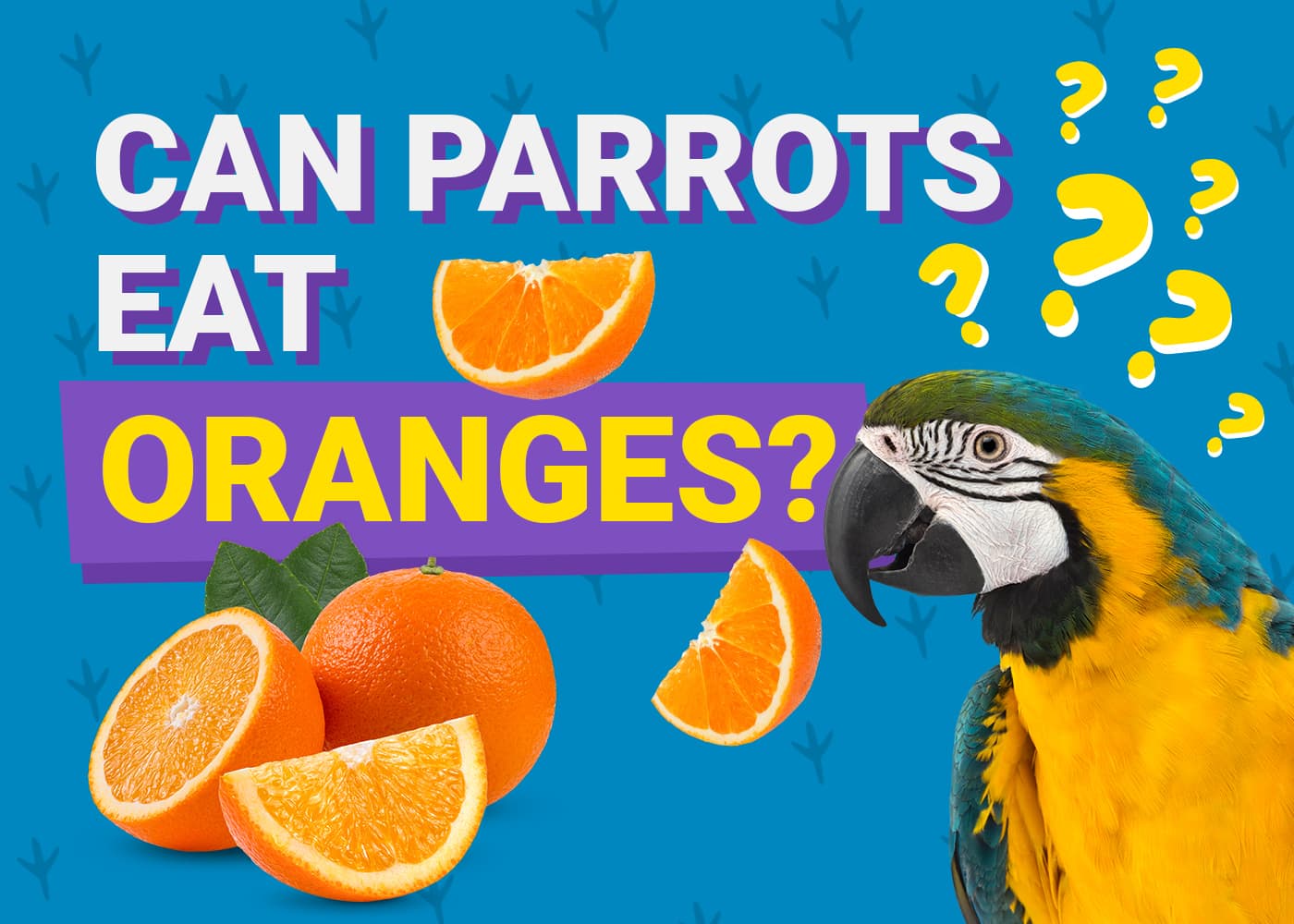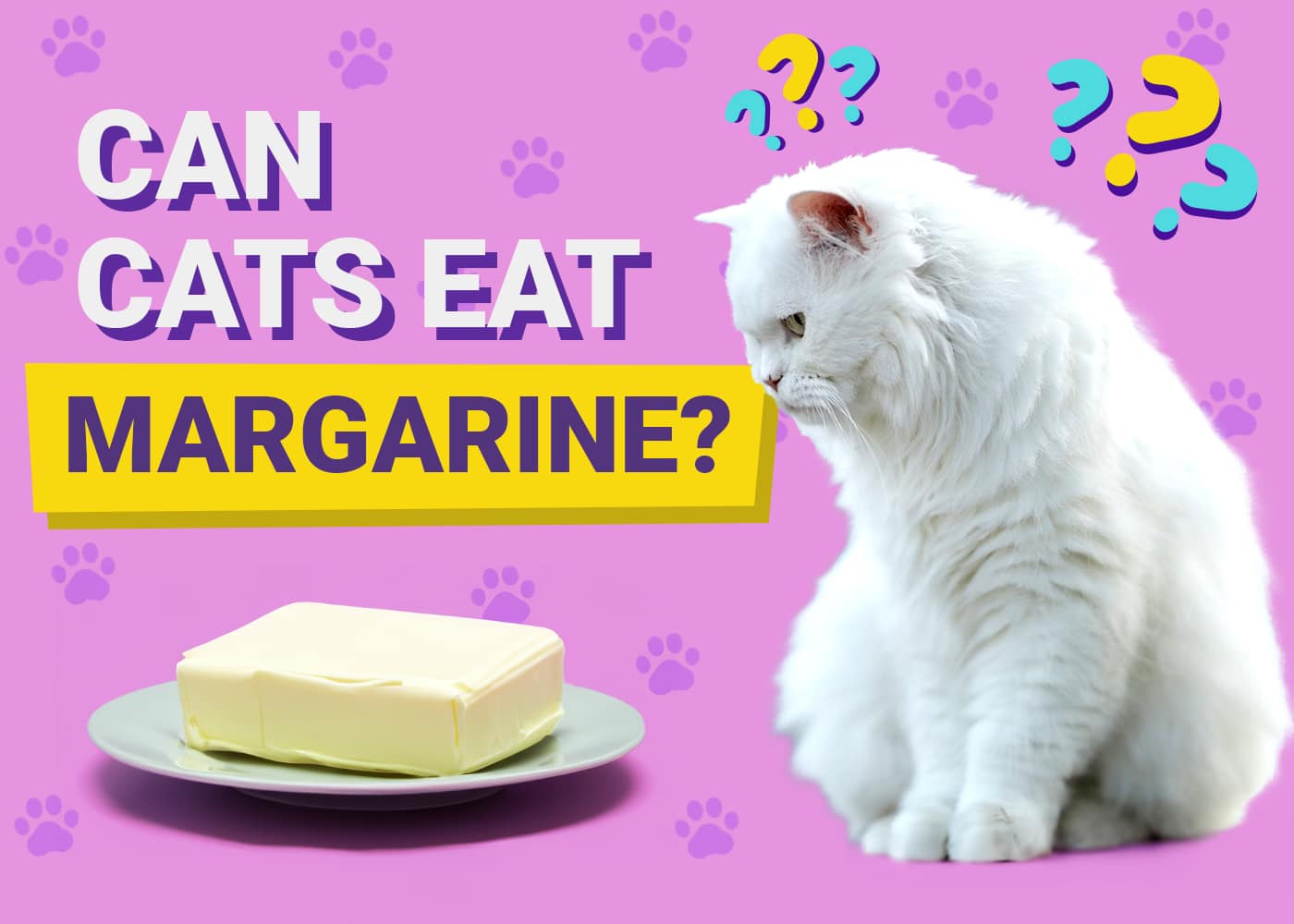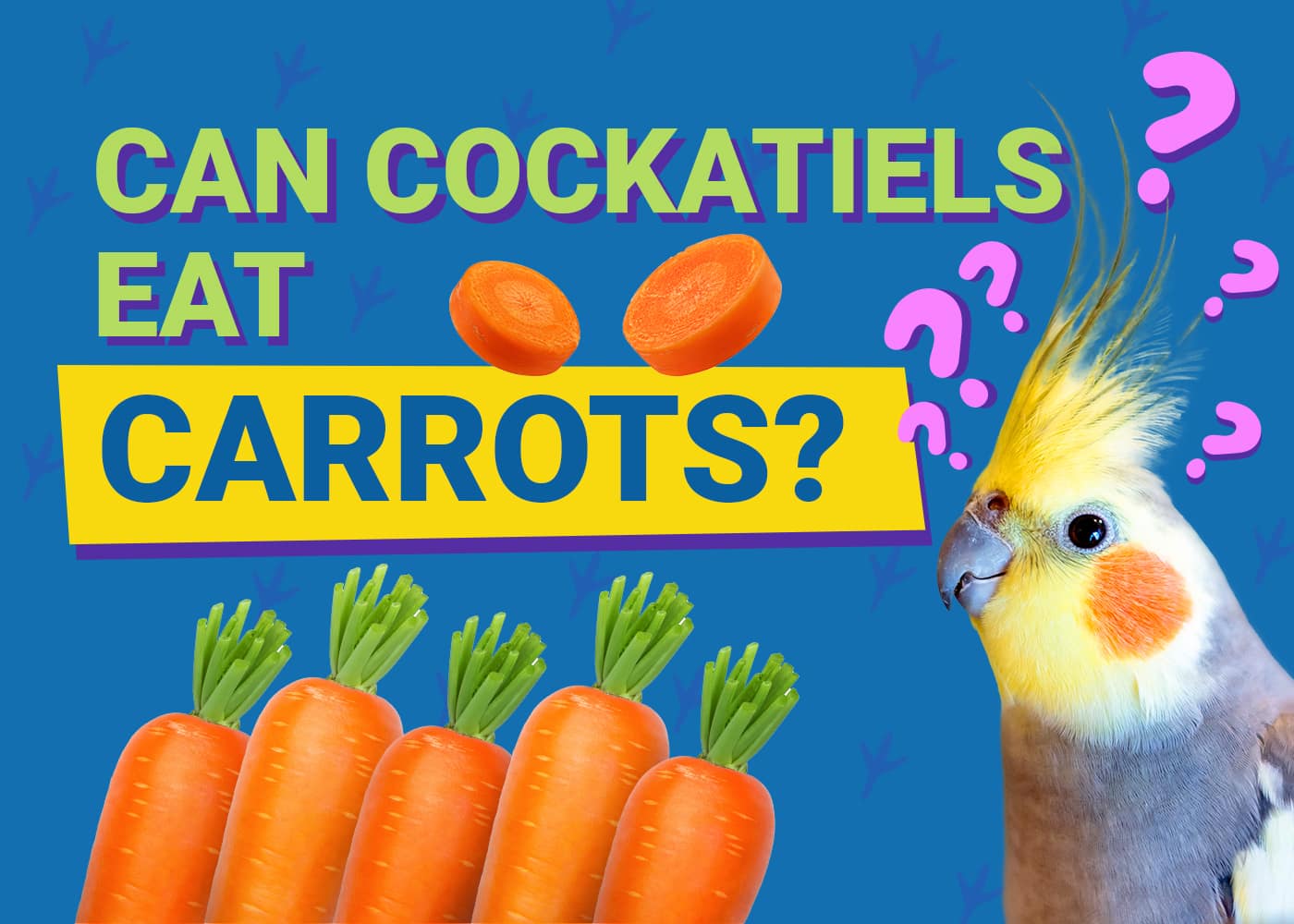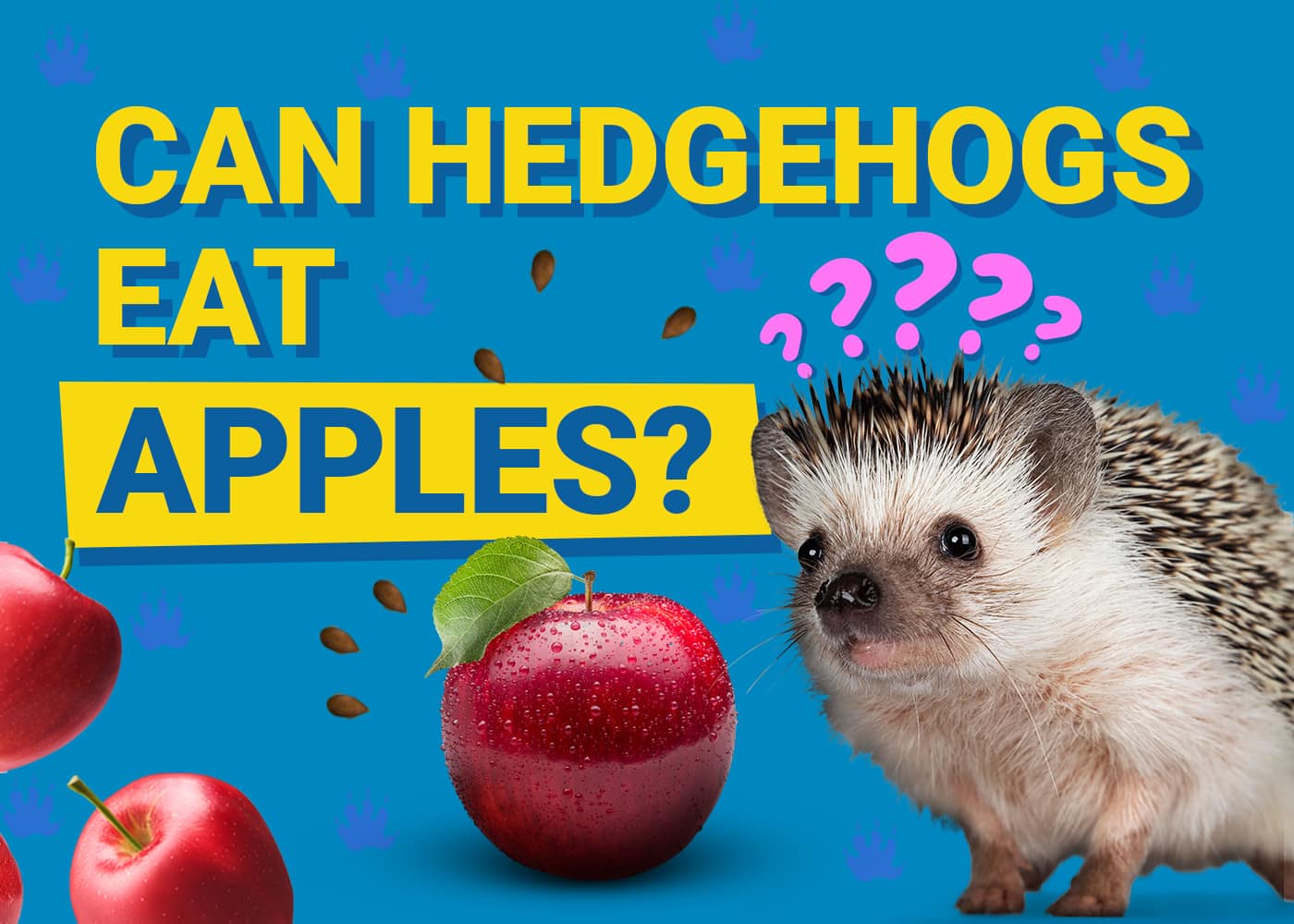VET APPROVED

The information is current and up-to-date in accordance with the latest veterinarian research.
Learn more »Being a first-time bird owner isn’t as easy as it looks. One of the most important parts of owning a parrot is knowing which fruits are safe for them to eat. You’d assume that because many of them come from tropical climates, they can eat all fruits, but that isn’t the case. When it comes to oranges, are they safe for parrots to eat?
Yes, parrots can eat sweet oranges in moderation. Even though they may be safe to eat, let’s dive deeper into the details.

Oranges – Sweet or Sour?
The term “orange” is usually a reference to the sweet orange, which is the botanical cross Citrus × sinensis. Sweet oranges are the most common type of orange and are indeed safe for parrots to consume.
The sweet orange should not be confused with the bitter orange or sour orange. This orange is the botanical cross Citrus × aurantium. It’s native to southeast Asia but can be found all over the world. The bitter orange is toxic for all parrot species kept as pets.
The rest of this article discusses the sweet orange. If you’re not sure what kind of orange you have, it’s best to not offer it to your parrot.
Benefits of Giving Oranges to Parrots
Like most parrots’ diet, there is a balance to everything, and too much of one food could cause health problems. Though fruits do form a large component of the diet of many wild parrots, they often have far too much sugar in them to justify their placement in such quantities for pet parrots. These sugars are what give fruits their sweetness and are found in them in the form of carbohydrates.
Like most fruits, oranges are primarily composed of water, the aforementioned sugars, and an assortment of vitamins and minerals. Vitamin C is the main vitamin found in most fruits, and oranges are no exception to this rule. In fact, they are perhaps best known for their vitamin C content.
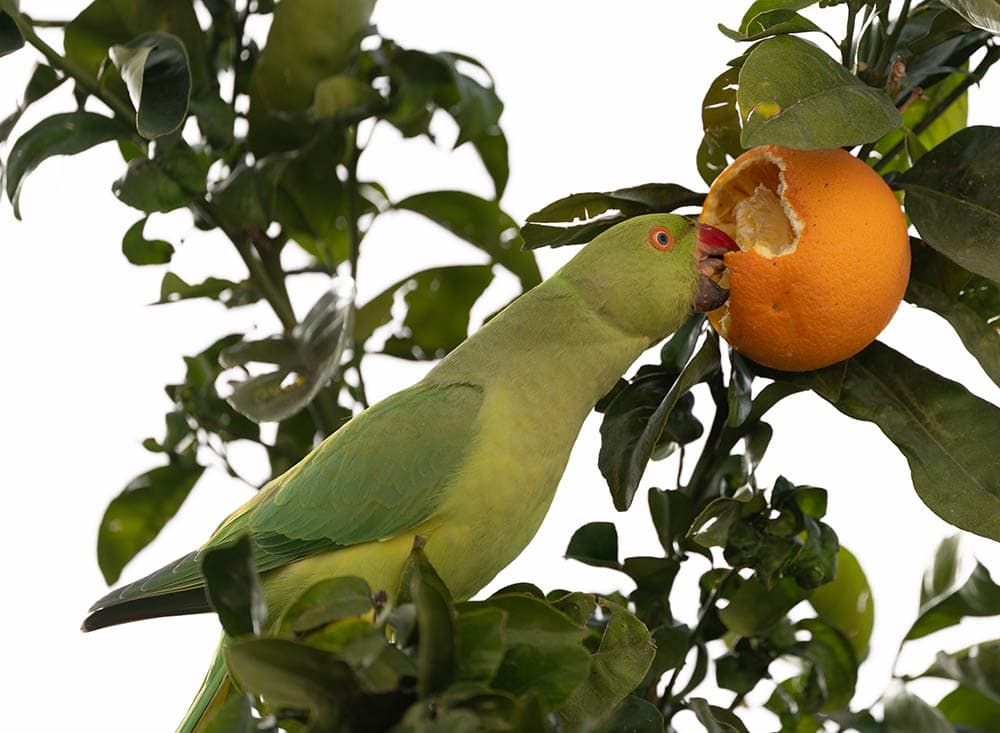
Interestingly, though, this isn’t the main appeal for its inclusion in the meals of any parrot, as parrots can make their own vitamin C. A sick parrot may benefit from the supplemental inclusion of vitamin C in their diet, but oranges are not ideal for offering this vitamin to your pet if they’re unwell. It’s worth noting that an unwell parrot may not be keen on eating either, and suddenly forcing them to eat a large quantity of fruit may lead to gastrointestinal distress and make them even worse!
With all that being said, almost all present-day nutritional guidelines for parrots do recommend the inclusion of fruits in their diet in moderation. Oranges are indeed safe for your parrot, do offer some energy, and of course, will add to their enrichment if they are particularly fond of this fruit. They are perhaps best suited for parrots that are classified as frugivores (such as macaws, conures, and African greys) or nectarivores (such as lorikeets).
Can Parrots Eat Orange Peels?
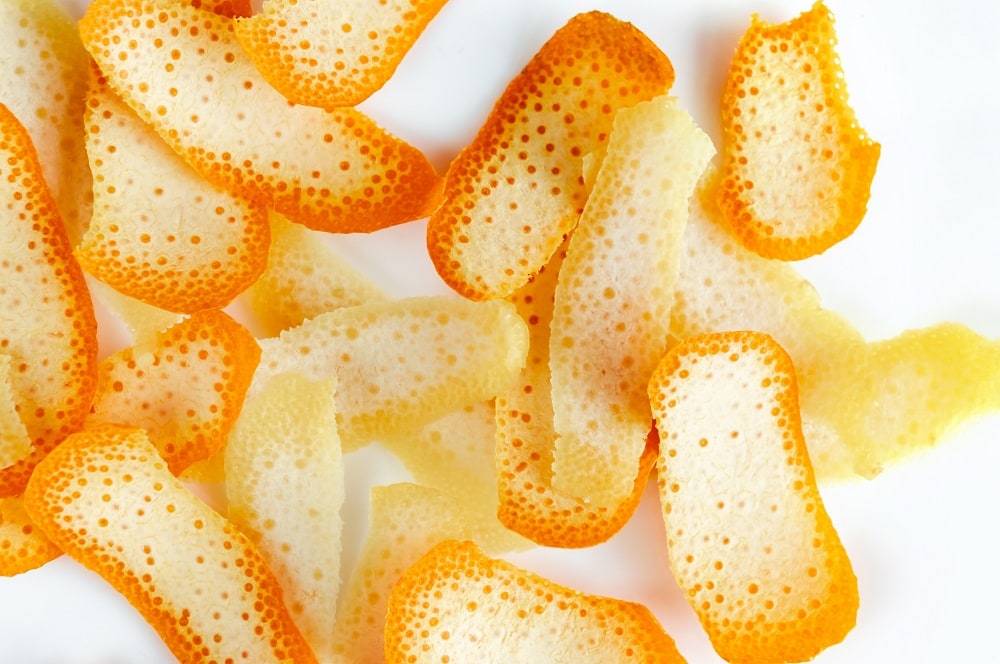
We know that the inner flesh is safe for our pet birds, but what about the outer peel? The great thing about oranges is that you can give them a slice without having to take the peel off.
Parrots possess hooked beaks which allow them to make short work of the fruit’s skin. Some parrots prefer to eat the outer skin, and others don’t. Either way, make sure you wash it before handing it over to remove any lingering dirt or pesticides.
What About Orange Juice?
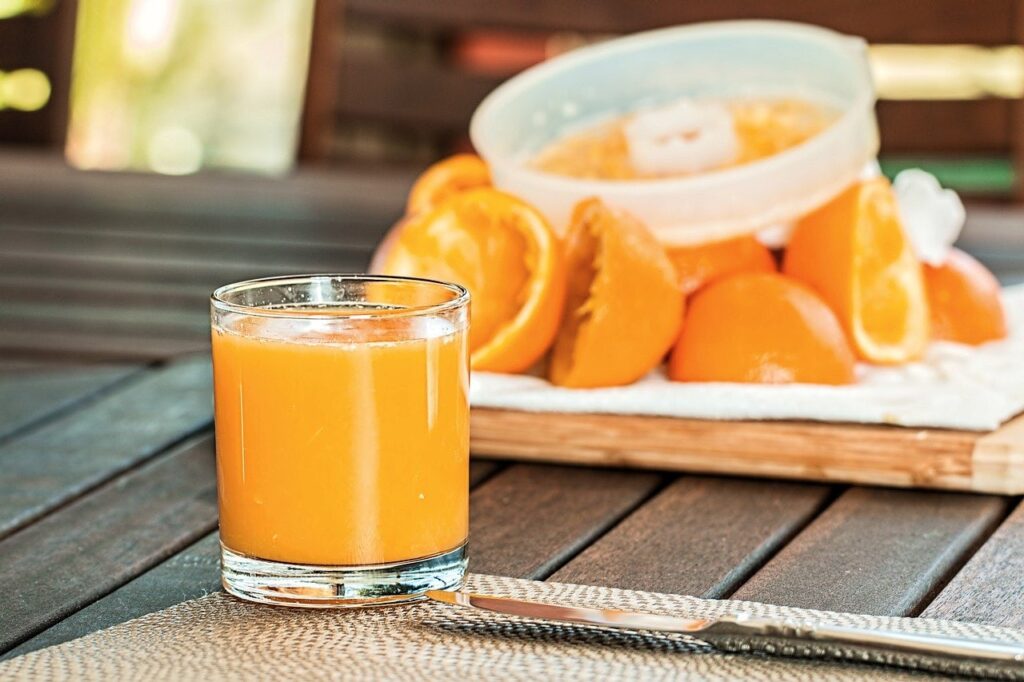
Freshly squeezed orange juice may sound like a good idea for parrots but it isn’t recommended for them. It is far too high in sugar to justify its use as a quench thirster for your bird. It may also quickly lead to an overweight parrot, especially if they learn that throwing a tantrum and refusing water until you offer them orange juice will work.

How to Serve Oranges to a Parrot
We encourage adding some oranges to your parrot’s food rotation. It’s best to offer them raw, fresh orange. Just remember that there are a few precautions you should take before serving this fruit.
How Often to Serve Oranges?
Instead of giving them oranges every day, try to think of an orange slice as one of many fruits you offer your parrot on a regular basis in moderation (no more than 5–10% of their diet for that day). With that being said, with careful portioning, it is definitely possible to offer your parrot a tiny piece of orange every day as well, should they be particularly fond of it.
Cleaning Fruits
Seeing a moldy fruit served to you is a major turn-off. If you wouldn’t eat it yourself, why would you give it to your pets? Always check the fruits that you serve to your parrots to make sure they are free from mold and dirt. Rinse them under cold running water before peeling or cutting into them. Washing your produce gets rid of traces of pesticides that could severely harm your bird.
About Dried Oranges
A lot of dried fruits have high levels of sulfur dioxide because it works as a preservative. Sulfur dioxide could have some adverse side effects if given to your parrot. Dried fruits are also exceptionally high in sugar and as such, shouldn’t be offered to your parrot.
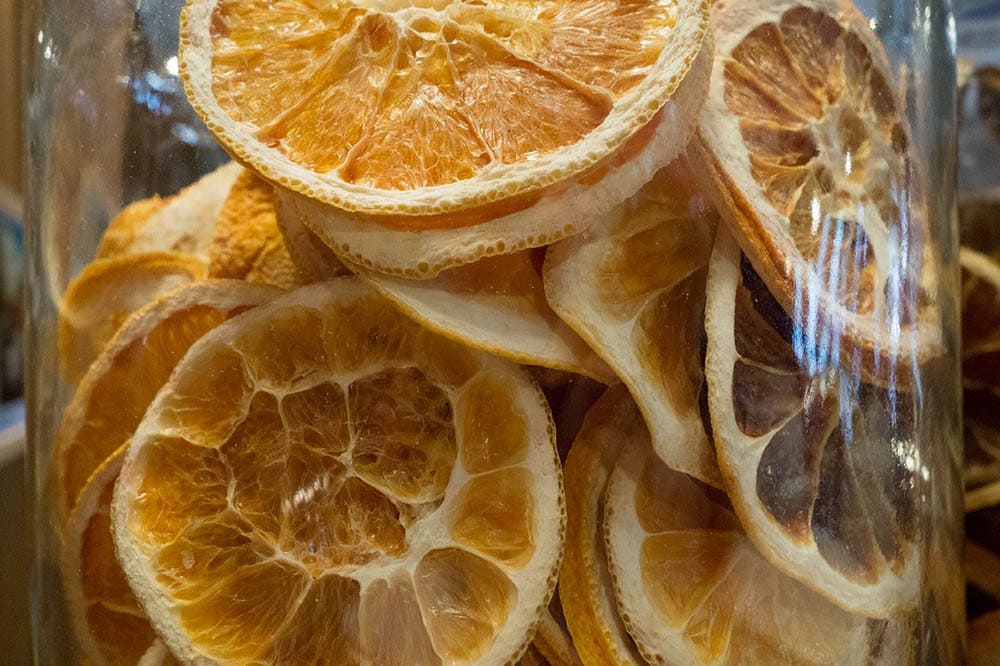

Conclusion
Although parrots can safely eat sweet oranges, you want to make sure that you give everything in moderation and are only feeding them clean fruit. Pay special attention to all the foods that you give your parrots. If you’re ever in doubt about your pet’s nutritional needs, it’s best to reach out to your veterinarian for more information.
Next on your reading list:
Featured Image Credit: Pixabay
